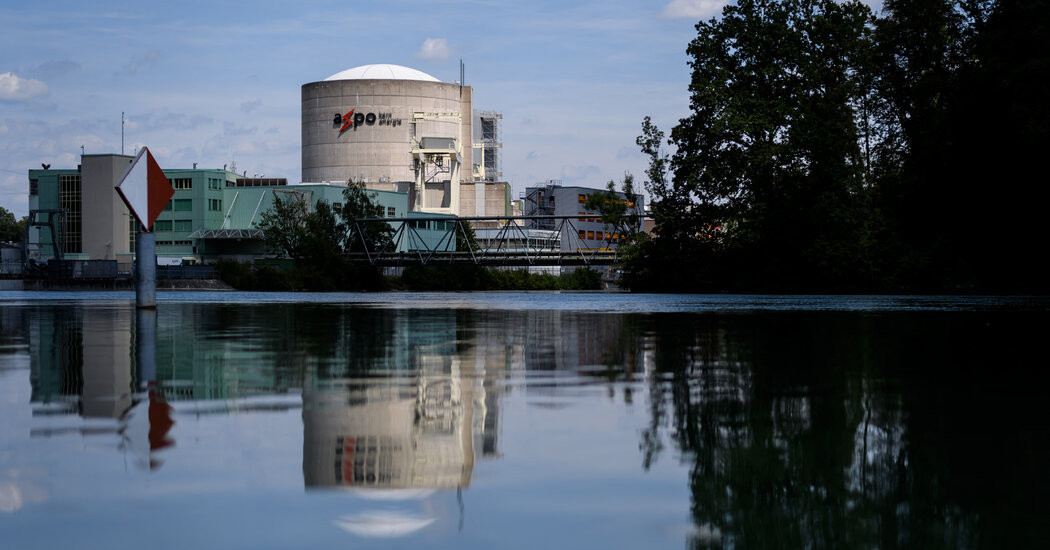

Power plant operators in Switzerland and France idled reactors so that discharged cooling water would not harm wildlife in already-hot rivers.
A record-breaking heat wave in Europe is warming up the river water that some nuclear power plants use for cooling, prompting operators to shut down at least three reactors at two separate sites.
Late on Sunday, operators shut down one of the two reactors at the Golfech Nuclear Power Plant in southern France after forecasts that the Garonne River, from which it draws water, could top 28 degrees Celsius, or roughly 82 degrees Fahrenheit.
The Beznau Nuclear Power Plant in Switzerland, built along the Aare River near the country’s northern border, followed suit, shutting down one of its reactors on Tuesday and the other on Wednesday.
Both plants are designed to keep their reactors at safe temperatures by cooling them with river water, which is then pumped back out at higher temperatures. Regulations in both countries require operators to reduce energy production when the rivers get too hot, in order to protect downstream environments.
The operator of the Beznau plant, Axpo, said that “excessive warming of the already-warm river water during hot summer periods is to be prevented in order not to place additional strain on flora and fauna.” In a statement, Axpo confirmed that a limit of 25 degrees Celsius had been exceeded for several days in a row.
Other river-cooled nuclear reactors, including one at the Bugey plant in southeastern France, have reduced their power generation. Temperatures across Europe have regularly exceeded 100 degrees Fahrenheit this week, though forecasters say relief is on the way over the weekend.



